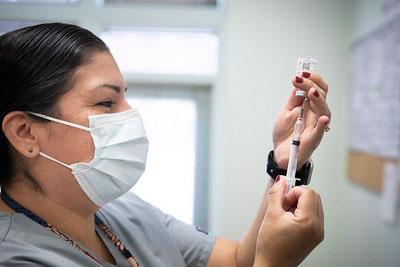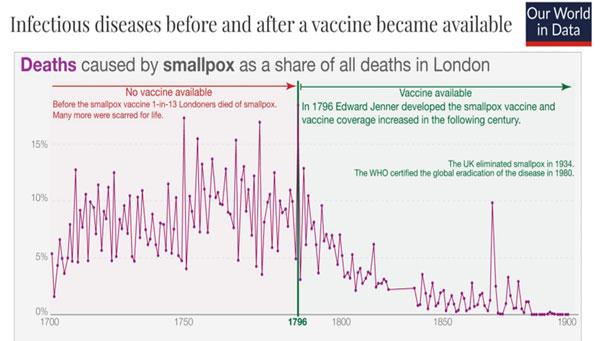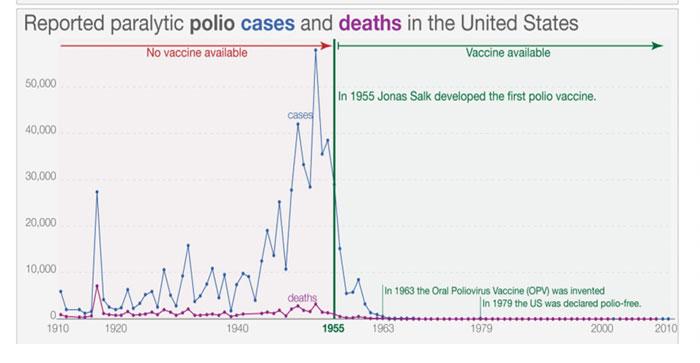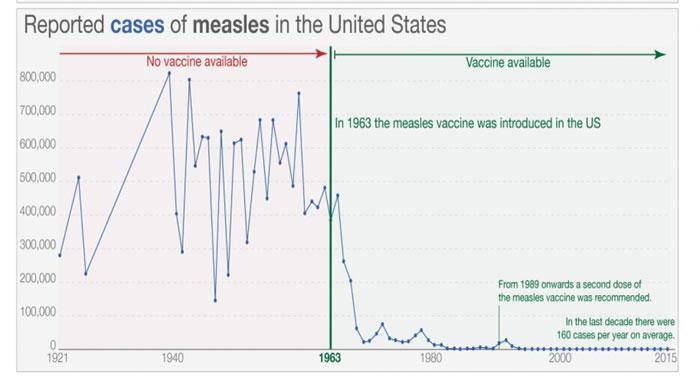Vaccines are one of the most significant medical breakthroughs in the history of public health. They have saved countless lives, prevented the spread of devastating diseases, and played a pivotal role in improving the quality of life for individuals and communities. In this essay (Notes on Vaccines), we will explore the principles, importance, and controversies surrounding vaccines, highlighting their indispensable role in safeguarding public health.
What are Vaccines?
Ø Vaccines are biological preparations designed to stimulate the immune system in our body and provide protection against specific diseases.
Ø They typically consist of a harmless form of a pathogen, such as a virus or bacterium, or a piece of the pathogen, such as a protein from its surface.
Ø These harmless pathogens are exposed to the body to induce immunological responses.
Ø The goal of vaccines is to induce an immune response without causing the disease itself.
Ø By doing so, they prepare the immune system to recognize and respond effectively if the real pathogen ever enters the body.
Ø Vaccines play a crucial role in public health by preventing and controlling infectious diseases.
Ø Vaccines can be prophylactic or therapeutic.
o Prophylactic vaccine: to prevent or alleviate the effects of a future infection by a pathogen.
o Therapeutic vaccine: to fight a disease that has already occurred, such as cancer.
Ø The administration of vaccines is called vaccination.
Ø Vaccination is the most effective method of preventing infectious diseases.
Ø Vaccines are responsible for the eradication of smallpox and the near-elimination of diseases like polio and measles.
Ø WHO reports that licensed vaccines are currently available for 25 different infections.
You may like: Types of Vaccines
You may like: mRNA Vaccine
How Vaccines Prevent Diseases?
Vaccines can prevent diseases in two different ways such as: (1) Antibody Production and (2) Cellular Immunity
Antibody Production
Ø Vaccines can stimulate the production of antibodies.
Ø Antibodies are proteins that can recognize and neutralize the pathogen.
Ø These antibodies provide immunity against the disease.
Cellular Immunity
Ø Some vaccines activate specific immune cells, such as T-cells.
Ø Activated T-cells can directly attack infected cells or regulate the immune response.
The History of Vaccines
Ø The history of vaccines can be traced back to the 18th century when Edward Jenner, an English physician, developed the first successful vaccine.
Ø Jenner’s discovery laid the foundation for the field of immunization.
Ø He used cowpox to inoculate individuals against smallpox, a deadly disease that had plagued humanity for centuries.
Ø This groundbreaking approach set the stage for the development of vaccines against a wide range of infectious diseases.
Importance of Vaccines
Disease Prevention
Ø The primary purpose of vaccines is to prevent diseases.
Ø They work by introducing a weakened or inactivated form of a pathogen into the body, prompting the immune system to produce antibodies.
Ø These antibodies provide immunity, so when an individual encounters the actual pathogen, their immune system can quickly mount a Defense.
Ø Vaccines have been instrumental in eradicating or controlling many deadly diseases, such as polio, smallpox, and measles.
Herd Immunity
Ø Vaccines not only protect individuals but also contribute to herd immunity.
Ø When a sufficient percentage of a population is immunized, the spread of a disease is significantly reduced.
Ø This protects vulnerable individuals who cannot receive vaccines, such as those with weakened immune systems or allergies.
Economic Benefits
Ø Vaccination programs result in substantial economic benefits.
Ø They reduce healthcare costs by preventing illness, hospitalizations, and long-term medical care.
Global Health
Ø Vaccines have played a crucial role in global health initiatives in developing countries.
Ø Efforts to vaccinate against diseases like polio and malaria have made significant strides in reducing the burden of these diseases in low-resource settings.
Controversies and Misinformation
Despite the undeniable benefits of vaccines, controversies and misinformation persist. Some common concerns include:
Safety
Ø A frequent concern is the safety of vaccines.
Ø Extensive research and rigorous testing are conducted before vaccines are approved for use, and regulatory agencies continually monitor their safety.
Ø While vaccines can have side effects, severe adverse reactions are rare.
Personal Choice vs. Public Health
Ø Some individuals argue that vaccine mandates infringe on personal freedoms.
Ø However, public health experts stress the importance of balancing personal choice with the need to protect the broader community through herd immunity.
Conclusion
Vaccines had an immeasurable impact on public health by preventing the spread of dangerous diseases, saving lives, and promoting overall well-being. Their development and widespread use are among the most significant achievements in medical science. While concerns and controversies persist, it is crucial to base our decisions on sound scientific evidence and prioritize the health of both individuals and the broader community.
<<< Back to Immunology Notes Page
You may also like NOTES in...
BOTANY BIOCHEMISTRY MOL. BIOLOGY
ZOOLOGY MICROBIOLOGY BIOSTATISTICS
ECOLOGY IMMUNOLOGY BIOTECHNOLOGY
GENETICS EMBRYOLOGY PHYSIOLOGY
EVOLUTION BIOPHYSICS BIOINFORMATICS
You may also like...
NOTES QUESTION BANK COMPETITIVE EXAMS.
PPTs UNIVERSITY EXAMS DIFFERENCE BETWEEN..
MCQs PLUS ONE BIOLOGY NEWS & JOBS
MOCK TESTS PLUS TWO BIOLOGY PRACTICAL




